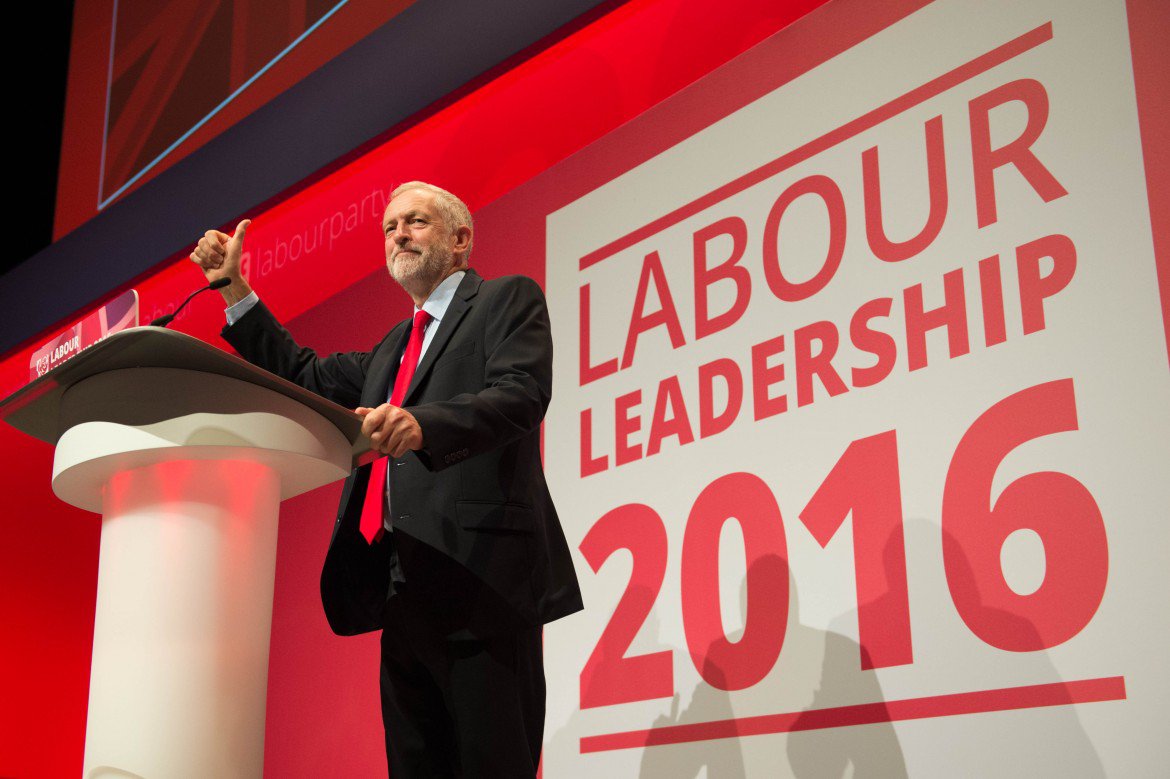Analysis
Corbyn’s encore sends shock to conservatives
The secretary declared the Labour Party’s viability in general elections, directly challenging a principal criticism against his leadership.

More than 600,000 members, both old and new, who had faith in him were rewarded: On Sunday in Liverpool, Jeremy Corbyn’s parousia — the Second Coming — was finally accomplished. The Liverpool conference paid tribute to the leader with a monumental victory, 61 percent of the total vote against the feeble 38.2 percent for Owen Smith, a stooge slain at the last moment by the centrist members of the party who were frantically searching for a nonexistent moderate superhero who does not terrify their friends in the City.
The counting revealed there was an impressive voting turnout of 77.6 percent out of 640,500 eligible voters, including party members, trade union and supporters. Corbyn pocketed 313,209 votes, against 193,229 for his rival: a widely expected outcome but this does not change the expectations on the most anticipated conference in the history of the Labour Party, which officially opened Monday. A definitive mandate, which far exceeded the results we already saw when he became the unlikely protagonist last September, when he outclassed the other three candidates and won an already very respectable 59.5 percent of the vote.
In his second inaugural address, Corbyn committed to mend the deep tear in the party. He reiterated the line of the last few days, opening to the dissidents, stressing the common heritage that unites all Labour members regardless of their individual trends and declared his willingness to welcome back the conspirators with open arms.
“Elections are passionate and often partisan affairs and some things are often said in the heat of the debate that we later come to regret,” he said. “We have much more in common than that which divides us. As far as I’m concerned, let’s wipe that slate clean from today and get on with the work we’ve got to do as a party together.”
According to Nina Power, a senior lecturer in philosophy at the University of Roehampton, his overwhelming victory among party members demonstrates, despite the constant attacks in the media and civil strife, that “Corbyn is fighting for things that people consider important: against war and nuclear weapons, for free education, including higher education, for public health, for the fair taxation on tax evaders, against austerity and for welfare, for the re-nationalization of the railways.”
The secretary then directly addressed the hint of the party’s ineligibility under his leadership, which was until recently the main argument of his many detractors. “Together arguing for the real change this country needs I have no doubt that this party can win the next general election,” he said.
And this is not just rhetoric riding on the enthusiasm. The continuous sabotage attempts and especially the frenzied campaign of the past two months, far from sapping this 67-year-old man, have made him tough, shrewd and polished. There could not be a more cruel and mocking outcome for the Blairite troops, now battered and drifting, who have tempered the enemy rather than defeat it.
The Nietzschean aphorism, “What does not kill me makes me stronger,” suits him perfectly.
From Sunday, the dream of the party’s base (and the nightmare of his representatives) have irrevocably come true: The Labour Party ceases to be what it had become two decades ago — that is, the Board of Directors of an existing sinister entity, only capable of repainting the old sleazes instead of really tackling the underlying causes.
“It’s a historic defeat for the party’s right wing, which has dominated it for most of its history,” says Jeremy Gilbert, professor of Cultural and Political Theory at the University of East London. “Now, the party led by Corbyn faces enormous challenges: hostile media, a weak labor movement, a populist right on the rise and a huge division at the base on the immigration issue. But these challenges can be answered. The question is whether the vast majority of the parliamentary party, used to an era of unassailable neoliberal consensus, will come to terms with the new situation, or if they continue to behave like hysterical children, without understanding the damage they cause or the futility of their anger.”
Sunday’s triumph marks an incontrovertible fact: the return of U.K. politics in the post-Brexit era is a reality, not a pseudo reality dictated by the press offices and spin doctors, and able to speak clearly, not in sound bites or advertising slogans. As Power emphasized: “The era of the news spin is over. Nobody wants these slick politicians who look like lawyers. It is not true that we live in a ‘post-truth’ world: People know the difference between a person of integrity and a liar, and they do not want any more liars.”
Originally published at http://ilmanifesto.info/labour-corbyn-fa-il-bis/ on 2016-09-26
